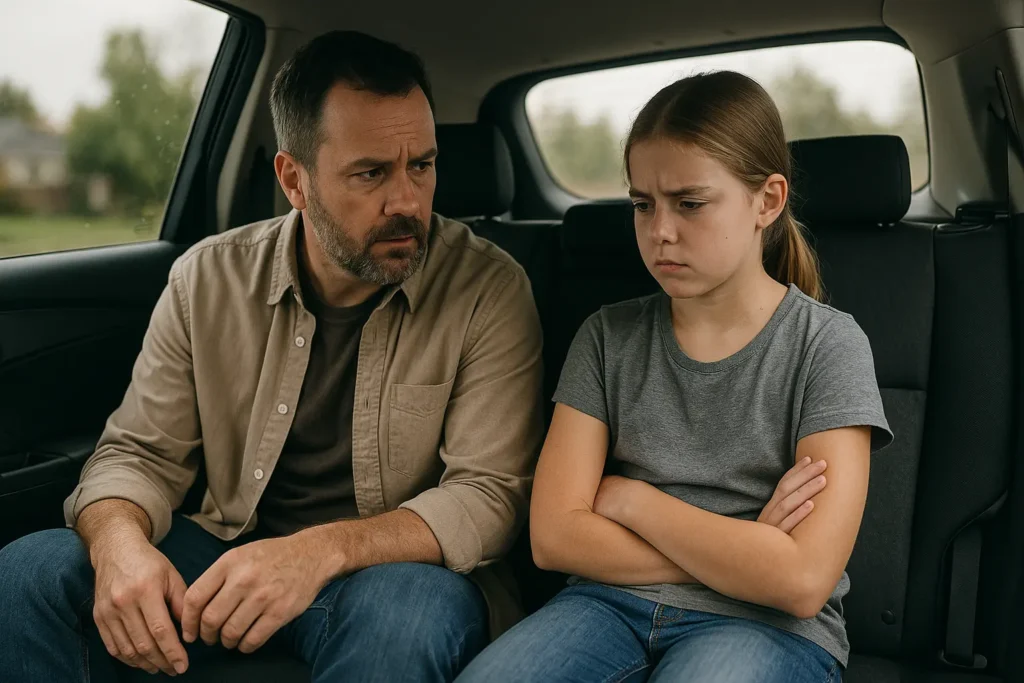
Co-parenting requires consistency, communication, and patience—but when a child refuses to follow the custody schedule, tensions can rise quickly. This kind of resistance creates emotional strain for both households and can disrupt carefully crafted parenting plans. While courts expect parents to uphold custody orders, they also recognize the importance of a child’s emotional well-being. Successfully navigating these challenges means finding the balance between legal obligations and your child’s needs. Understanding how to respond calmly and constructively can help preserve a healthy co-parenting dynamic and keep your child’s best interests at the center of every decision.
Understand Why Your Child Resists
Children resist visits for many reasons. The reason matters. A court might treat refusal due to boredom or screen time rules very differently from refusal caused by fear or emotional abuse. Before reacting, look into the root of your child’s behavior.
Common Reasons for Refusal
- Separation anxiety, especially in young children
- Strained relationship with the other parent
- Major lifestyle differences between homes
- Poor discipline or communication in the other household
- Feeling caught in the middle of adult arguments
- Fear due to verbal or physical abuse
Your next steps depend on what’s behind your child’s refusal. A teenager who doesn’t want to leave their friends may need different handling than a young child scared of a parent’s temper.
Talk with Your Child Without Leading
Start with an open conversation. Ask neutral questions like “Can you tell me what’s bothering you?” Avoid suggesting answers or blaming the other parent. Children may pick up on your bias and say what they think you want to hear.
Use a calm tone and listen without judgment. Sometimes, children want control over their time and space. In other cases, they’re responding to something serious. Let them speak freely so you can separate normal resistance from real problems.
Follow the Court Order While Documenting Everything
Even when your child resists, you’re still responsible for following the custody order. Texas courts expect parents to make reasonable efforts to carry out the schedule. This means getting your child ready and encouraging them to go, not standing by and letting them skip it.
However, courts also understand that some refusals go beyond your control—especially with older children. If your child physically resists or runs away, avoid using force. Instead, document the incident in detail:
- Date and time
- What you said and did
- How your child reacted
- Any messages or calls to the co-parent
- Steps you took to follow the order
This helps show that you acted in good faith. Keep a log of these events, and avoid putting anything inflammatory on text or social media.
Notify the Other Parent
If your child skips a visit, inform your co-parent right away. Use neutral language. Avoid blaming or arguing. For example:
“Just letting you know, [Child’s Name] refused to get in the car today. I tried talking with them and encouraging them to go. They got very upset and wouldn’t budge. Let me know how you’d like to handle this.”
Keeping communication open and civil shows that you’re trying to work together.
Offer to Help Rebuild the Relationship
If your co-parent is open to it, suggest ways to ease tension and help your child reconnect. This might include:
- Meeting in a public place instead of home
- Using shorter or daytime visits before overnight stays
- Attending therapy together
- Joining your child on drop-offs or pickups for comfort
Judges often favor parents who try to fix the problem instead of escalate it.

Involve a Family Counselor or Therapist
If refusal continues, a licensed therapist can help uncover deeper issues. They give your child a safe space to speak and help both parents understand what’s happening emotionally. This is especially helpful when the child feels stuck between loyalty to one parent and anger at the other.
Therapists can also provide written reports if the issue goes back to court. Their perspective carries weight when judges evaluate what’s in the child’s best interest.
Be Honest With Yourself
Children sometimes mirror a parent’s feelings. If you speak poorly about your ex, roll your eyes during pickups, or talk about court problems around your child, they may absorb those signals. Even passive comments like “You don’t have to go if you’re upset” can lead them to push against the schedule.
If you find yourself venting near your child or reacting strongly to custody transitions, step back. Kids need to see both parents as safe and stable. Keep adult issues out of their reach.
File a Motion to Modify If Needed
If the current order no longer works due to your child’s age or needs, you may have grounds to request a change. Texas allows custody modifications when there’s a material change in circumstances. This might include:
- Ongoing refusal backed by a child therapist
- Abuse, neglect, or safety concerns
- Changes in school or health needs
- The child turning 12 and expressing a strong preference
Speak with a family lawyer before filing. They can help you avoid making unsupported claims and prepare solid documentation.

What Not to Do
Avoid common mistakes that could hurt your case or harm your child emotionally.
Don’t:
- Threaten or punish your child for refusing
- Coach your child to say negative things in court
- Make drop-offs into power struggles
- Allow repeated refusal without seeking help
- Use refusal to block your co-parent’s time
All of these can damage your credibility in court and make your child feel trapped.
Teenagers and Custody Refusal
Texas courts don’t allow children to make final decisions about custody. But once a child turns 12, a judge may consider their wishes. Still, the court will look at maturity, reasons for refusal, and parental influence.
Teens who drive, work, or stay busy with school may resist out of convenience or conflict. In these cases, both parents should talk about modifying the schedule to fit the teen’s life. If you ignore the issue or argue constantly, the child may suffer long-term emotional damage.
When Safety Is a Concern
If you believe your child is in danger during visits—due to abuse, substance use, or unstable conditions—contact a lawyer right away. You may need to request a temporary restraining order or emergency custody.
Gather documentation like:
- Medical records
- Photos
- Witness statements
- Therapist letters
- Police reports
Act quickly, but don’t block visits without legal approval unless your child faces immediate risk. Judges expect real evidence, not suspicion or hearsay.
Final Thoughts
When a child refuses to visit a co-parent, it can trigger emotional, legal, and logistical challenges. As a parent, you want to protect your child, avoid violating court orders, and maintain a sense of stability. In co-parenting situations like these, it’s important to stay calm, identify the root of the refusal, and document your efforts to comply with the custody agreement.
Texas courts prioritize cooperation over conflict. Demonstrating good faith—whether by encouraging visits, seeking professional support, or involving the court when necessary—shows your commitment to your child’s emotional and physical well-being while staying legally compliant.

Ebook
Other Articles you may be interested on regarding
- Questions on Co-parenting? Examine This Guide to Learn Some Answers
- Co-Parenting with an Abusive Ex-Spouse
- Mastering the art of co-parenting after divorce
- Supervised Visitation in Texas: A Necessary Safeguard
- Visitation schedules for police officers
- Visitation Rights: Understanding and Protecting Your Parental Rights
- Grandparent visitation in Texas: What you need to know
- Relocation with a child whose other parent has minimal visitation
- Spring break visitation and possession: a breakdown for Texas families
- Can a parent have weekend visitation terminated or not ordered?
- What is a Standard Possession Order and how does it impact the visitation I have with my kids?
- Possession and Access Schedules- impacts on Weekend Visitation and Custody in Texas
- The impact of Juneteenth (and other Federal Holidays) on Possession and Visitation Schedules
- Firefighter visitation schedules for those who work 24-hour shifts
- How old does a child have to be to refuse parenting time with the noncustodial parent?
- Co-parenting: Buzz word or something worthwhile for you to practice?
- Texas Divorce and the Right of First Refusal
- How a Parenting Class Can Help Me and My Ex-spouse Co-parent in Texas?

 If you want to know more about what you can do, CLICK the button below to get your FREE E-book: “Child Custody E-Book”
If you want to know more about what you can do, CLICK the button below to get your FREE E-book: “Child Custody E-Book”

